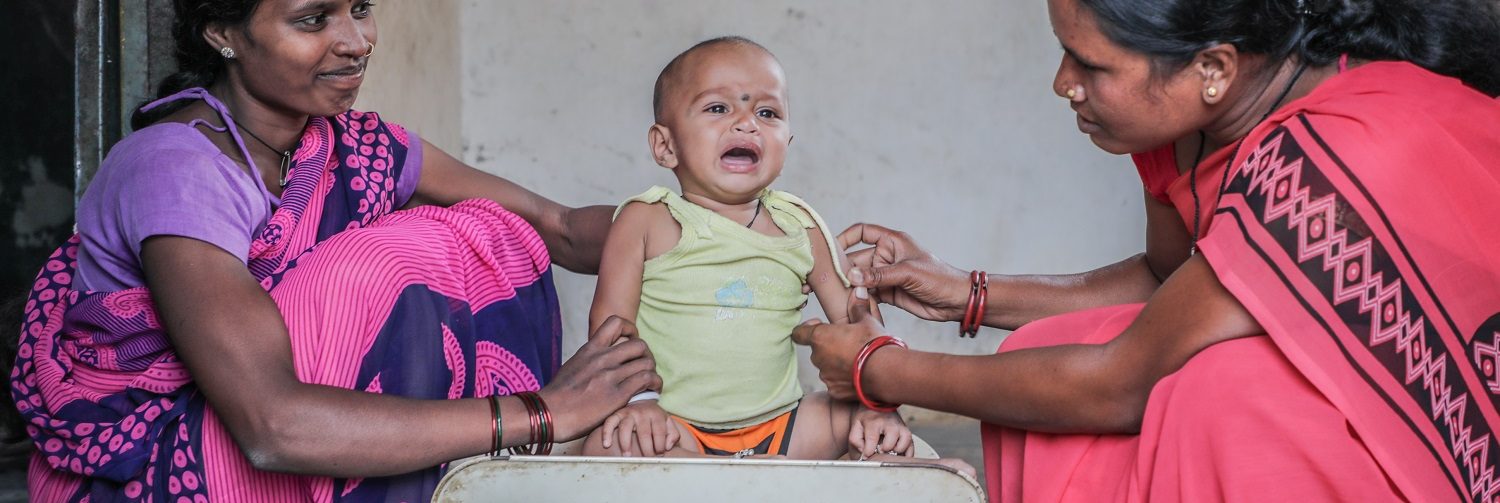 With an increased focus on nutrition, the Government of Odisha convened a one-day workshop to facilitate an evidence-based dialogue on addressing maternal and child undernutrition on October 9, 2013 in Bhubaneswar, Odisha. The event was led by the Government of Odisha, Department of Women and Child Development (DWCD) with support from the UK’s Department for International Development, Technical and Management Support Team (DFID-TMST) and the International Food Policy Research Institute (IFPRI).
With an increased focus on nutrition, the Government of Odisha convened a one-day workshop to facilitate an evidence-based dialogue on addressing maternal and child undernutrition on October 9, 2013 in Bhubaneswar, Odisha. The event was led by the Government of Odisha, Department of Women and Child Development (DWCD) with support from the UK’s Department for International Development, Technical and Management Support Team (DFID-TMST) and the International Food Policy Research Institute (IFPRI).
Participants included government officials from Odisha, development partners, staff from local NGOs, senior staff members from IFPRI, and other experts. The event commenced with Smt. Arti Ahuja, Secretary of DWCD, speaking at length on Odisha’s efforts to address undernutrition. This was followed by a series of three sessions, led by subject experts, related to direct and indirect nutrition interventions and bringing nutrition stakeholders together.
Session 1: Direct nutrition interventions:
Rasmi Avula presented key insights from the POSHAN-led program evidence review, highlighting gaps in programmatic evidence on delivering a range of direct nutrition interventions for nutrition. She emphasized the roles of infant and young child feeding (IYCF) practices and hygiene practices in relation to stunting, and underlined the need for strengthening programming and evidence in order to address critical gaps in these interventions.
Purnima Menon presented data on IYCF practices in India. She also shared preliminary findings from the process evaluation of the Alive & Thrive interventions to improve IYCF in Bangladesh, and reflected on the implications of those findings for Odisha.
Arun Gupta focused on the issue of capacity building to effectively address problems related to IYCF in India in his presentation. He suggested that capacity building initiatives should to be implemented at multiple levels in order to improve IYCF in India.
Session 2: Indirect nutrition interventions:
Suneetha Kadiyala provided an overview of indirect and nutrition-sensitive interventions, and their routes of influence in addressing undernutrition. She also shared findings from a recent IFPRI review of global experiences with multisectoral nutrition programs.
Biraj Patnaik shared his insights on the National Food Security Bill, and discussed governance issues related to the implementation of the bill, and the potential for the bill to be nutrition-sensitive.
Session 3: Bringing stakeholders together:
Mamata Pradhan presented results of a nutrition stakeholder mapping exercise that was conducted by POSHAN in Odisha on July 17, 2013 . She highlighted the positive policy and program environment for nutrition, and the central roles played by the state government and key development partners in Odisha.
Mr. Biraj Patnaik reflected on how civil society actors can engage with one another on nutrition-related issues, and what actors can contribute to strengthening the nutrition agenda in Odisha.
The discussion throughout the day was rich, and raised a variety of issues, ranging from the role of direct nutrition interventions to the need for community participation and issues related to systems-strengthening. Dr. Vandana Prasad, the expert discussant for the workshop, acknowledged the need for direct interventions but also emphasized the role of equity-focused evaluations, especially in addressing the underlying causes of undernutrition. She highlighted the need to look closely at geographic and societal sections within states that are not effectively reached by existing programs. She also underscored the need for research on operational issues that can be used to catalyze and strengthen programmatic action.
Smt. Arti Ahuja, concluded the one-day workshop noting the importance of formulating a nutrition plan based on actionable objectives as well as clearly established timelines and sectoral responsibilities for Odisha. Smt. Ahuja asserted that an effective nutrition plan, coupled with a strong monitoring system, would precipitate action on nutrition issues.
Read more:


